- Home
- Peter F. Hamilton
A Window into Time (Novella) Page 2
A Window into Time (Novella) Read online
Page 2
“I know. Jules, do you want to talk about it?”
“No. It’s in my head, Uncle Gordon. It’s never going to go away. Talking won’t help.”
“I get it. You must be starving. Let’s get some brunch.”
I hate brunch; you have either a late breakfast or an early lunch. Brunch means you’re missing a meal. It means you haven’t planned your day properly. Mum never did that. She always made sure meals came at the right time.
“Can we go down to the pub for a pizza?” I asked.
“ ’Fraid not.”
“Why? Has it changed landlords?” The landlord of the village pub is Italian. He makes The Best pizzas.
Uncle Gordon rolled one of his own cigarettes; he says he uses spinach leaves instead of tobacco. “Naa. Just a bit of a problem with my slate. I’ve not got much of the old folding stuff right now, see.”
“I’m sorry.”
He lit the cigarette. “Don’t be. There’s some frozen oven chips, and I’ve got some eggs.”
“That’s fine.”
So breakfast was egg and chips. The eggs were from the hens he keeps in a big coop he built on the front lawn. It’s a bit crude, made from wood posts that don’t match. He’s always getting letters from the parish council about “appearances” and “aesthetics of the village.” “Bunch of twats,” Uncle Gordon calls them. “Retired men with way too much time on their hands. It’s people like them who started the Nazi party, you know.”
That’s not really true; I checked on the Internet. But Uncle Gordon stands up for himself. I like that. I want to be like him when I grow up, standing up to Scrap Owen and Mods Haffla. But with a proper job in science, inventing something that helps people everywhere, not just some consumerist gadget.
Uncle Gordon finally got through to Dad at the honeymoon hotel just after they arrived.
“Oh Christ, son, I’m so sorry,” Dad said when Uncle Gordon handed me the phone. “How are you?”
“I’m with Uncle Gordon.”
“I know that but…are you okay?”
People always ask that when something serious happens. I think they see characters on TV doing it and believe they have to do the same. What does it matter to someone else how I feel? (Unless they’re trying to hurt me, in which case it makes them happy.) And what good does knowing make? It’s not like they can do anything to change it. Especially when I was in Lincolnshire and they were in the Maldives.
“I’ll be all right. The police told me it was instant. Mum didn’t suffer. They said that was good.”
“Okay, son, you hang tight there, okay? Remember, it’s smart to be strong. You’re my boy, and I’ll come home soon, and we’ll get through this together, okay? You won’t be alone. Promise. I’ll get tickets on the first plane out of here.”
I heard her. Rachel. Faint and in the background. She said: “Really? Dave, we just got here.”
“Shut it,” Dad said to her. I could tell he was turned away from the phone.
“Thanks, Dad.”
“I’ll find out about flights right away. You can rely on me, son.”
Uncle Gordon brought the wrong socks. Before we left our house, he’d shoved some of my clothes into the bag I used when I went to visit Dad—one of those small ones that just fit in the overhead lockers in airplanes.
He saw me sitting on the edge of the sofa bed we’d unfolded to give me somewhere to sleep that night. I was holding up the socks, two pairs.
“How are you getting on there, man?” he asked, his voice all soft and full of concern.
“You brought Tuesday and Friday,” I told him.
“What’s that?”
I held up the socks. I always have the socks that have the days of the week written on them. Mum knew I like them, so she bought them from Marks & Spencer specially; with the day on them, there’s no getting them messed up, or having odd socks. “Tuesday,” I said, shaking the Tuesday pair for emphasis. “Tomorrow’s Monday.”
“Oh, man, I don’t think Monday’s going to mind.”
“I mind,” I told him loudly. “It’s not right. It’s Monday tomorrow, and I haven’t got Monday socks.”
When I say stuff like that, about how things should be ordered properly, people look at me like I’m a stupid, not them. Uncle Gordon didn’t. He looked upset, because he knew it was important to me. “I’m sorry, man,” he said and came and sat down beside me.
“It’s Monday,” I told him. I thought I was going to cry.
He put his arm around my shoulder. “Tell you what. Tomorrow morning, you go all reckless and wild. Be sockless! I’ll do it, too, okay? The pair of us together, that’ll be matching, see? And we’ll take a trip into town and see if we can find some Monday socks. Hell, we’ll find a whole week of socks. That way you’ll be covered.”
I leaned in against him, and he gave me a gentle pat. Nobody understands me as good as Uncle Gordon. I know that’s a fact, because I remember how everyone treats me.
Chapter 3
New Start
Dad didn’t get a flight back for three days. Every plane out of Malé was all booked up, apparently. The flight took a day, so he didn’t land at Heathrow until really late Thursday, so he and Rachel stayed in an airport hotel that night and then came up to get me the next day.
There weren’t many people at the funeral. Eleven of us, actually. Me, Uncle Gordon, Dad and Rachel, and some of Mum’s friends from Yaxley, like Chan’s mother. It was at Marholm cemetery just outside Peterborough. At the end of the service, they played “Jerusalem” by K. D. Lang, which Mum liked, and the curtains closed around the coffin.
I had to sit down then. I was crying so hard it made my legs weak. And I knew everyone would be looking at me, which made it even worse—like they were all crowding around me the way people did with Victorian freaks at the circus. I could hear these noises coming from my mouth, as if an animal were dying somewhere. I hate doing that, but I couldn’t help it. I hated being me. I hated the world for what it was doing to me.
I hated everything.
The rest of the service was one of those memory gaps. After it was all over, it was just me and Dad sitting in the front row of the chapel. Everyone else had left.
Dad looked at me and said: “You okay?”
I told him: “Yes.” Even though I wanted to throw up.
“We’ll scatter her ashes in Burghley wood. She always liked the park there.”
“Okay.” I didn’t tell him they wouldn’t be her ashes, not really; it might upset him. Crematoriums don’t burn coffins individually. They wait until the end of the week and burn them all together, because that’s more cost-effective. And even then, the remains they give to families in the urns are mostly wood ash from the stack of coffins, because a body is 90 percent water. It’s on the Internet.
—
Dad’s flat was on Tottenham Road, Islington. It was a two-bedroom flat in a nice-looking old house, with a big (for London) lounge, and a kitchen diner that cost as much as a car.
Mum always called it his playboy pad. I don’t know why; it’s not like it looked out over the Thames or had a helipad or anything. Dad said it was very expensive, and Islington was a premium address. I thought the more money you spent on property, the bigger it was. I worked out the floor space; it was less than half of our house in Yaxley, but apparently it cost twice as much.
Dad should know all about that. As well as owning five properties in London, he’s a partner in a real-estate agency, which he started with two friends. He says his business plan is to own half of Islington by the time he’s fifty-five, then he’ll hand it all to me and retire. It was going to be when he was fifty, but the recession and austerity pushed it back five years.
The second bedroom was supposed to be his home office, but they put an Ikea bed in there for me. I brought some of my stuff down from Mum’s house, but I had to keep it in a stack of plastic storage boxes, as there was no space for any other furniture.
Rachel didn’t like me bein
g in the flat. Their bedroom was next to mine. I overheard them sometimes at night. She would say stuff like: “Of course I don’t mind. I just wasn’t expecting this right after we were married, that’s all.” And: “He’s a nice boy. I’m sure he’ll be lovely when I get to know him better.”
She looked at me, when she thought I couldn’t see her doing it. It was sort of a look that said: I know I’ve got to put up with you, but I don’t have to like it.
After I’d been there a week, I asked Dad: “Rachel doesn’t want me here, does she?”
And he answered: “You’re my son. This is your home.”
Which is the way politicians weasel their way out of answering questions they don’t like: They give an answer to a slightly different question they’ve made up in their heads. I see it a lot on the telly.
One night I heard Rachel say: “He could go and live with your parents.”
I’d been streaming a new Arrow episode on my tablet, so I paused it and took off my headphones so I could listen.
“In Spain? You’re kidding.” But my dad didn’t say it with much conviction, almost like he’d considered it as well.
“It would do him good, Dave. He’d get to see something of the world.”
“He’s thirteen and his mum’s just died. Give him a break. Besides, he can’t handle big changes well. You know that.”
“Yeah.” She sighed.
It was quiet for a minute, then their bed started creaking. Rachel giggled. I put my headphones back on and turned up the volume.
I was kind of expecting life to be worse in London. If you keep telling yourself something’s going to be bad, then there’s a chance it might not be quite as bad as you’ve convinced yourself it’s going to be, which makes it easier to live with.
I didn’t mind too much about living at the flat with Dad and Rachel. They went out a lot at night, so I could watch whatever I wanted and surf the Internet.
Trouble was, I’d only thought about living at the flat, not the rest of it. Turns out being crammed in with Dad and Rachel was the best part of London. I had to go to school again.
Dad was good about it. He gave me time after the funeral, and even took some days off himself to be with me. We didn’t do much. I wanted to surf the Internet, but we played some games. I’d brought his PlayStation present with me, and we played Destiny and FIFA (which I don’t like; it’s football), which were the games that came with it. After a couple of hours he got bored, and we watched some films on Netflix. I stayed in the flat by myself for the rest of the week and watched the shows I wanted—old stuff like Stargate and House, MD, which was great. I like House; he’s smarter than everyone else, and he’s not scared to show it. I’m going to act like that when I’m older.
Then the next week I went to St. George’s. I don’t know why; it was only three weeks until summer holiday. But Dad said it would be good for me, like a taster, so when I went back after summer holiday I’d know the people there and the school routine, which would help me, and that way I’d have a proper school year without problems.
I don’t know what he was expecting, but schools are pretty much the same everywhere. Full of stupid people who don’t like me. Instead of Scrap Owen and Mods Haffla I now had Jeff Murphy and Kenan Abbot. Most of the teachers were okay—they kept the other kids from buzzing me in lessons—though I didn’t like Mr. Reham, the principal. He was always talking in what Uncle Gordon calls psycho-bollock-speak, telling me and Dad that I would have to “reestablish a normality reference,” and how “the school will provide Julian with a fully holistic interactivity agenda of support functions.”
I think my dad agreed with Uncle Gordon about Mr. Reham; I could tell it from the way he said less and less during the interview. But St. George’s agreed to take me first because Dad’s flat was well inside the catchment area and second (so Dad said) because of my SAT scores from my old school. “There’s going to be a new academy opening up around here next year. St. George’s is going to be in competition with them for smart pupils like you, son.”
“Couldn’t I just homeschool?” I asked that evening.
Dad and Rachel exchanged a glance—one of those where she warns him not to give in to me. When he gets hit by them he always collapses and does what she wants. “I’m not really the best person to teach you, son, not the academic stuff. Life lessons is more my thing. I’m going to take you down the local boozer as soon as you’re old enough.” He winked. “Probably a bit before that, eh?”
“I don’t need you to do the teaching,” I explained. “The syllabus and all the lessons are on the Internet. I can access it. You can check how many hours I do each day.” One advantage of living in London is the unreal broadband speed—especially when you have a cable connection, like my dad’s flat had.
“You have to go to school, son,” he said. “I might have a word with the principal about getting you assessed next term, when you’ve settled in, so they put you on the gifted kids list.”
“It’s not ‘gifted’ anymore, Dad; that discriminates against everyone else. It’s ‘high ability’ now. And, anyway, my memory didn’t qualify me for it.”
“Political correctness gone mad,” he muttered. “It was your attitude, son, not your memory; that’s why you missed out last year. Remember, we talked about this? But you’re older now, so maybe you’ll do better this time.”
I hate it when Dad (and Mum—’coz she used to) asks “Do you remember?” when he’s trying to make a point. It’s just insulting. He knows I remember everything.
So I went back to school, for three whole nightmare weeks.
And it was in the second week that I remembered something that had never happened.
Chapter 4
The Past Is a Memory
It was the bus that did it. Which makes it a trigger, I suppose. I was walking to school. It was raining that morning; it had been raining all night. There were big puddles everywhere, and the street was packed tight with cars and lorries and bikes and buses. One drove right through a puddle next to the pavement where I was walking and sent up a huge splash. I was wearing a coat, but it still soaked my trousers. They laughed, all the other kids walking to school—the ordinaries and the stupids. I could hear them, but all I remembered was another time a bus had done that. On the same road but in winter.
Only I’d never been on that road in winter. I knew it was winter because the leaves were falling off the trees and jamming up the gutter and drains—which is why there were even bigger puddles then. And it was late afternoon, with all the lights shining out of the shops, and rain blurring the headlights. And the road was different somehow.
That bit took me awhile to work out, as the memory was only a few seconds. Me getting soaked, doing the whole shaking-my-arms thing, like the way a dog shakes to get water out of its fur. And I yelled “Arsehole!” at the car. That was weird. I’m normally too scared to shout like that in public. When I get angry and do finally shout, the stupids laugh at me. But in the memory, no one laughed at me. Everyone was too busy scurrying past on their way home.
It’s really strange having a memory that isn’t your own. Some people say they hear voices in their head. Normally nutters, who try to claim the voices told them to commit a crime, like serial killers. That way they get sent to a cushy prison, which is a mental hospital, too, and they get doctors and nurses fussing around them all day, and a room to themselves, and nice food; stuff that gets the tabloid sites all wound up with them, saying it’s a travesty of justice.
I thought the memory might be my version of voices. It wasn’t me, but I knew the chill when the puddle water hit, so that part was definitely real. But the sweatshirt on the arms of the not-me was dark blue, and I’d never had a dark-blue sweatshirt. It’s like a school one. St. George’s pupils wore a green one. But the trousers in the memory were gray, which were school trousers. And the not-me was definitely taller.
Then there was the road. There was something about it that wasn’t right—on top of the w
hole thing about it not being my memory. I kept playing it over in my mind and saw the people around me. They were ordinary, all wrapped up in coats and carrying bags. But the coats were like really old-fashioned. Nobody wears coats like that anymore.
I concentrated on the cars. They were all old models, too. Three of them were close enough for me to read the number plates. Right now, number plates in England start with two letters, which are the area code, followed by two numbers, which are the age identifier, then three more letters, which are picked at random. Like this: DF64KUS. The numbers on the street I remembered weren’t anything like that. They had a letter, three numbers, then three more letters, like this: W358AJP.
In the flat that night, I looked it up on the Internet. Having number plates on a car in the UK only became compulsory in 1904. Since then, the government has changed the sequence several times—first in 1932, then 1963, again in 1982, and finally the current one in 2001. They had to do it because the old sequences kept running out of combinations.
The number plates in the not-mine memory were all from the pre-2001 change. Two of the cars had a T at the start, while the one closest to me had a W. W was for the year 2000, so this not-mine memory was from at least the year 2000.
To start with, I did think that maybe the memory was from back when I was an infant, being pushed around in a pram, and that the puddle splash was a memory trigger. But it couldn’t have been. First off, I was definitely wearing a blue sweatshirt in the memory, and I was walking, and I was taller than I am now. Second, I hadn’t been born in 2000.
Chapter 5
Déjà Vu
I thought about what I remembered. I thought about it really hard. People say I never know what’s going on around me, which is just so ridiculously untrue. I always know. So there had to be a reason for me remembering something I wasn’t even alive for.
“I think I’ve had a brain seizure,” I told Dad the next morning at breakfast.

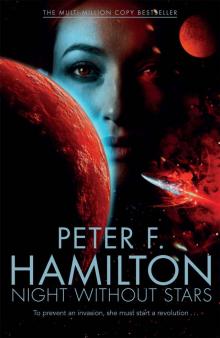 A Night Without Stars
A Night Without Stars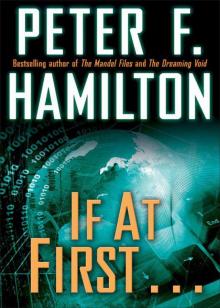 If at First . . .
If at First . . .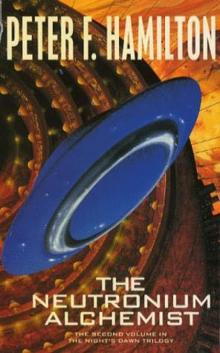 The Neutronium Alchemist
The Neutronium Alchemist Great North Road
Great North Road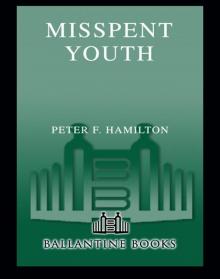 Misspent Youth
Misspent Youth Pandora's Star
Pandora's Star The Evolutionary Void
The Evolutionary Void The Dreaming Void
The Dreaming Void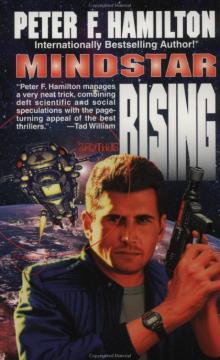 Mindstar Rising
Mindstar Rising The Temporal Void
The Temporal Void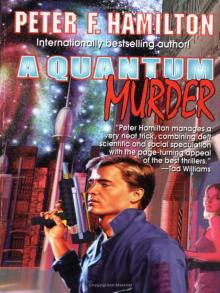 A Quantum Murder
A Quantum Murder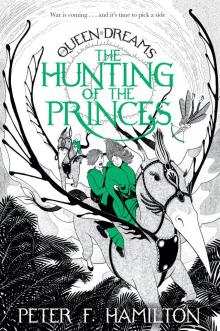 The Hunting of the Princes
The Hunting of the Princes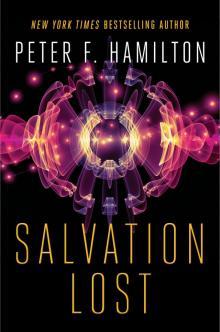 Salvation Lost
Salvation Lost The Dreaming
The Dreaming Salvation
Salvation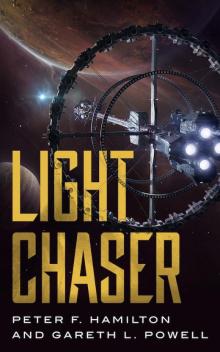 Light Chaser
Light Chaser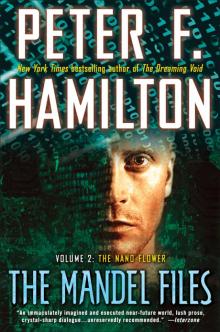 The Mandel Files, Volume 2: The Nano Flower
The Mandel Files, Volume 2: The Nano Flower![The Saints of Salvation [British Ed.] Read online](http://i1.bookreadfree.com/22/the_saints_of_salvation_british_ed__preview.jpg) The Saints of Salvation [British Ed.]
The Saints of Salvation [British Ed.]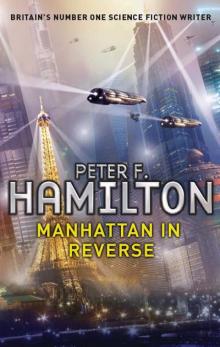 Manhattan in Reverse
Manhattan in Reverse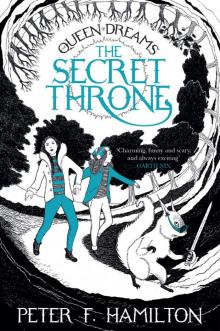 The Secret Throne
The Secret Throne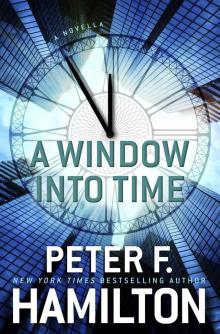 A Window Into Time
A Window Into Time A Second Chance at Eden
A Second Chance at Eden The Nano Flower
The Nano Flower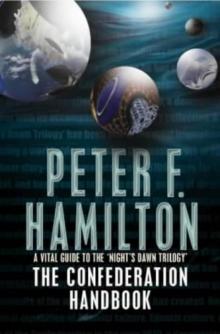 The Confederation Handbook
The Confederation Handbook The Naked God
The Naked God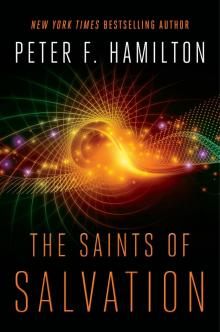 The Saints of Salvation
The Saints of Salvation The Void Trilogy 3-Book Bundle
The Void Trilogy 3-Book Bundle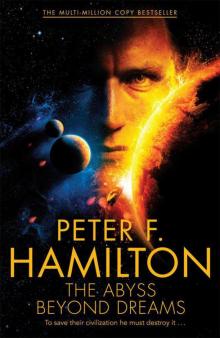 The Abyss Beyond Dreams
The Abyss Beyond Dreams A Voyage Through Air
A Voyage Through Air Judas Unchained
Judas Unchained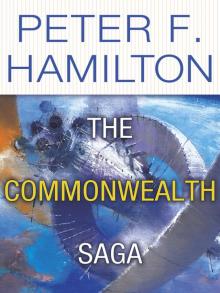 The Commonwealth Saga 2-Book Bundle
The Commonwealth Saga 2-Book Bundle The Naked God - Flight nd-5
The Naked God - Flight nd-5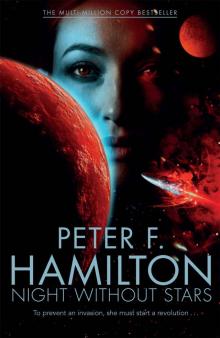 Night Without Stars (Chronicle of the Fallers Book 2)
Night Without Stars (Chronicle of the Fallers Book 2)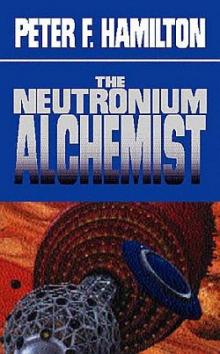 Neutronium Alchemist - Conflict nd-4
Neutronium Alchemist - Conflict nd-4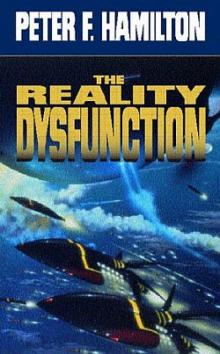 Reality Dysfunction - Expansion nd-2
Reality Dysfunction - Expansion nd-2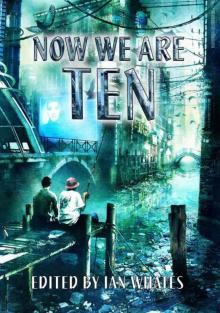 Now We Are Ten: Celebrating the First Ten Years of NewCon Press
Now We Are Ten: Celebrating the First Ten Years of NewCon Press Neutronium Alchemist - Consolidation nd-3
Neutronium Alchemist - Consolidation nd-3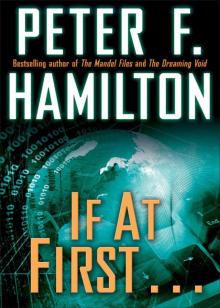 If at First . . . (Short Story)
If at First . . . (Short Story) A Second Chance at Eden nd-7
A Second Chance at Eden nd-7 Judas Unchained cs-2
Judas Unchained cs-2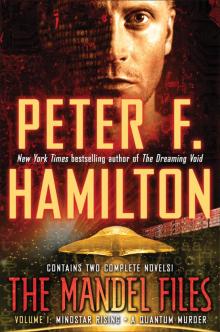 The Mandel Files, Volume 1
The Mandel Files, Volume 1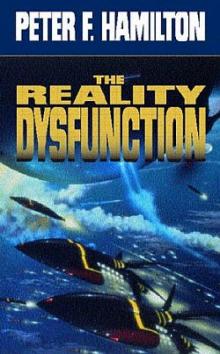 Reality Dysfunction — Emergence nd-1
Reality Dysfunction — Emergence nd-1 The Temporal Void (ARC)
The Temporal Void (ARC)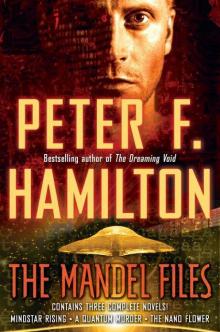 The Mandel Files
The Mandel Files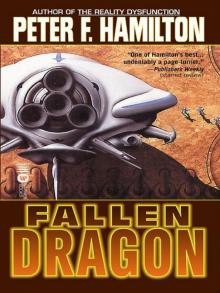 Fallen Fragon
Fallen Fragon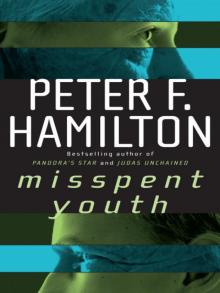 Misspent Youth (commonwealth saga)
Misspent Youth (commonwealth saga)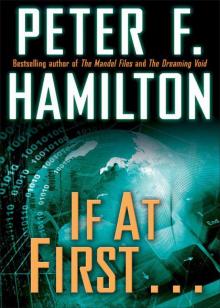 If at First...
If at First... Best of British Science Fiction 2016
Best of British Science Fiction 2016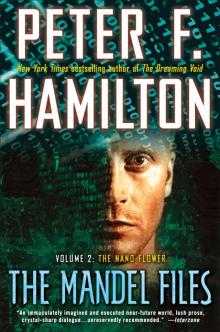 The Mandel Files, Volume 2
The Mandel Files, Volume 2 The Naked God - Faith nd-6
The Naked God - Faith nd-6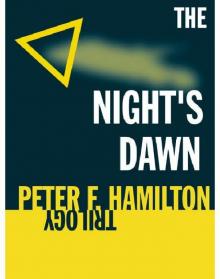 The Night's Dawn Trilogy
The Night's Dawn Trilogy Pandora's Star cs-2
Pandora's Star cs-2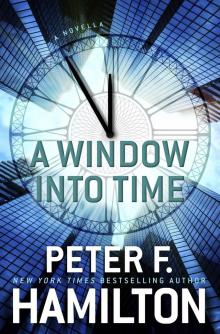 A Window into Time (Novella)
A Window into Time (Novella)